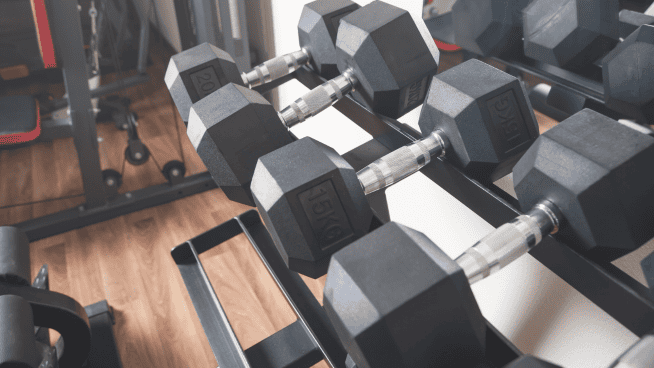Clogged Arteries Can Hide in Seemingly "Healthy" Athletes
You’re an athlete who works out every day, so there’s no way you’re at risk for heart disease, right? Unfortunately, not necessarily. According to a new study published by the University of Quebec, just being active and maintaining a healthy weight do not confer immunity from atherosclerosis, the dangerous buildup of fat on artery walls.
Working with 168 apparently healthy volunteers, ages 18 to 35, researchers for the study found that although none of the volunteers had red flags like obesity, smoking, high blood pressure or a family history of premature heart disease, a “staggering” number of them had atherosclerosis.
Young adults with atherosclerosis have an increased risk for heart attack or stroke later in life. According to the study’s researchers, fat buildup on artery walls is like a ticking time bomb.
Doctors recommend preventing atherosclerosis by taking two important steps:
Eating Healthy
Many athletes feel that since they lead active lifestyles, they can eat any food they want. But fatty foods are dangerous to the body, even if they don’t enlarge your waistline. If you need to add weight for your sport, do it by eating healthy calories instead of fat.
Talking to a Doctor
During your next physical exam, ask your doctor to test your cholesterol to rule out the possibility of clogged arteries. If you have high levels of LDL cholesterol, talk to a coach and dietitian about heart-healthy foods and a cardio program to that can help you meet both your athletic and health goals.
RECOMMENDED FOR YOU
MOST POPULAR
Clogged Arteries Can Hide in Seemingly "Healthy" Athletes
You’re an athlete who works out every day, so there’s no way you’re at risk for heart disease, right? Unfortunately, not necessarily. According to a new study published by the University of Quebec, just being active and maintaining a healthy weight do not confer immunity from atherosclerosis, the dangerous buildup of fat on artery walls.
Working with 168 apparently healthy volunteers, ages 18 to 35, researchers for the study found that although none of the volunteers had red flags like obesity, smoking, high blood pressure or a family history of premature heart disease, a “staggering” number of them had atherosclerosis.
Young adults with atherosclerosis have an increased risk for heart attack or stroke later in life. According to the study’s researchers, fat buildup on artery walls is like a ticking time bomb.
Doctors recommend preventing atherosclerosis by taking two important steps:
Eating Healthy
Many athletes feel that since they lead active lifestyles, they can eat any food they want. But fatty foods are dangerous to the body, even if they don’t enlarge your waistline. If you need to add weight for your sport, do it by eating healthy calories instead of fat.
Talking to a Doctor
During your next physical exam, ask your doctor to test your cholesterol to rule out the possibility of clogged arteries. If you have high levels of LDL cholesterol, talk to a coach and dietitian about heart-healthy foods and a cardio program to that can help you meet both your athletic and health goals.












